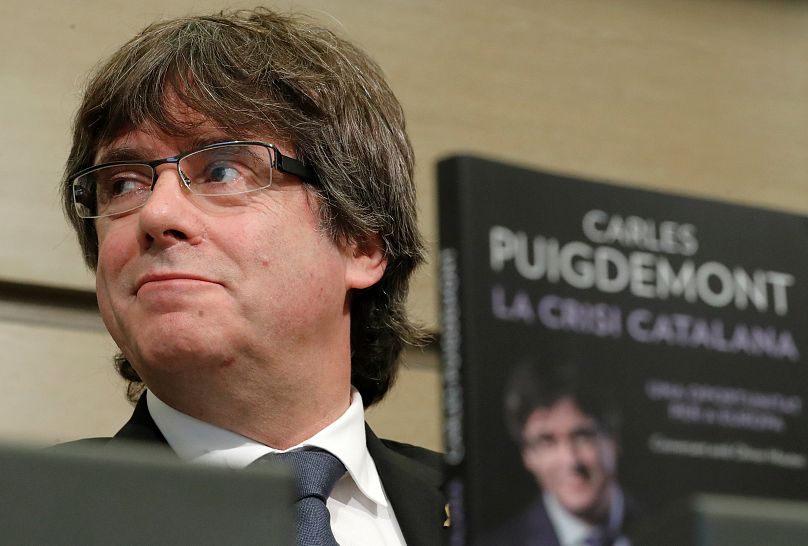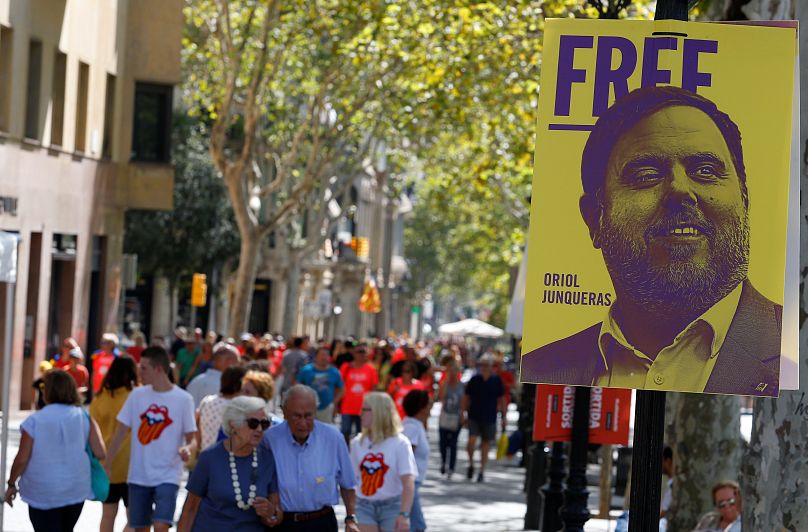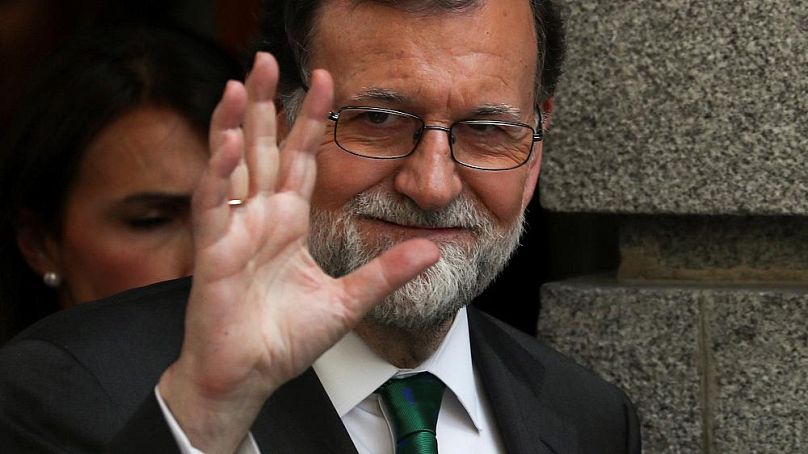On the one-year anniversary of the banned independence referendum, triggering one of the biggest institutional crises in Spain, where are its protagonists? Has the Catalan pro-independence movement lost its power?
On the one-year anniversary of the banned independence referendum, triggering one of the biggest institutional crises in Spain, where are its protagonists? Has the Catalan pro-independence movement lost its power?
Six in prison, five abroad, three retired — this is how the former Catalan president Carles Puigdemont's government looks a year after celebrating the independence referendum, declared illegal by the Spanish Constitutional Tribunal. Who is where?
Catalan officials
Abroad
Carles Puigdemont, the former separatist leader, has been in the news ever since he left Spain 12 months ago when he fled to Belgium. A few months ago, Puigdemont was detained in Germany and then exonerated by Belgian justice. He’s now installed his office in the Flemish city of Waterloo where he tries to bring international attention to the issues he sees concerning the Spanish government.
Like him, four of his advisers decided to leave Spain to avoid judgment by a Spanish court. Antoni Comín, Lluís Puig and Meritxell Serret also chose Belgium as their country of residence, while Clara Ponsati decided to seek refuge in Scotland where she works in the University of Saint Andrews.
In Prison
Oriol Junqueras, the former vice president of the separatist Catalan government, has been in pre-trial detention for more than a year awaiting trial. His colleagues Jordi Turull, Raül Romeva, Joaquim Forn, Josep Rull and Dolors Bassa are in the same situation. Junqueras’ freedom has become one of the principal goals of the current separatist leader Quim Torra, as well as founding a Catalan republic.
Some supporters hope the former vice president will be released from jail at the end of this year or at the beginning of 2019 when his trial for rebellion, secession, and embezzlement takes place.
But other figures of the independence movement have suffered. Jordi Sanchez, former president of ANC — an organization that works for Catalonia’s independence — and Jordi Cuixart, president of Òmnium Cultural — a Catalan association based in Barcelona — are still in pre-trial detention, after being among the first jailed on October 16, 2017. Carme Forcadell, former president of the Catalan Parliament, also finished up in jail and is still awaiting trial.
Retired
Former advisers Santi Vila, Meritxell Borràs and Carles Mundó have retired from politics and continue living in Catalonia while they await the result of the judicial process.
Mariano Rajoy's government
A year on from the referendum, the Spanish Government does not look the same either. A vote of no confidence saw former prime minister Rajoy ousted, after which he left politics to resume his career as a property registrar. Its vice president, initially designated as the one tasked with taking the reins in Catalonia, Soraya Sáenz de Santamaría, has also withdrawn from political life after losing a struggle to lead the People's Party (PP).
The separatist feeling neither increases nor diminishes
Have the imprisonments of their leaders worn away or reinforced the enthusiasm of the independence movement in the streets of Catalonia?
Spanish historian Enric Ucelay Da told Euronews that he perceives no increase in strength in the independence movement as a whole, nor does he see it diminishing.
Ucelay Da points out it is as yet unclear if the government's policies aimed at appeasing the situation will help Prime Minister Pedro Sanchez reconcile matters, but that "a fierce reaction" is expected from the "constitutionalist" parties, including the PP, especially when the judicial process begins.
"The only factor that can alter the situation of confrontation and entrenchment is fatigue," he said. "There is a fatigue factor that affects everyone, even the lower ranking sectors."
For Abel Escribà Folch, a professor of social and political sciences at the Pompeu Fabra University in Barcelona, the independence movement has not lost strength concerning two factors: social support and the capacity to mobilise. "The only force that may have been altered is that of political initiative at the level of parties and institutions," he said.














